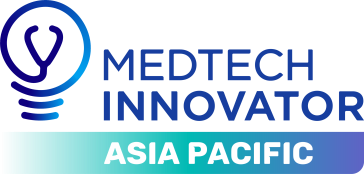
Volume 593 Issue 7860, 27 May 2021 [封面图]

《Chronic disease management’s digital future》 [内容页]

在中国,人工智能正在帮助用户主动管理其因不良生活方式带来的影响,将多种慢病健康管理解决方案集成到中国排名领先的数字化健康管理平台上。

中国最大的数字化健康管理平台之一——妙健康CEO孔飞介绍,使用个性化的数字技术来进行健康管理,可以降低因不良生活方式导致的相关疾病的发生概率。自2014年以来,妙健康一直利用人工智能和大数据平台提供先进的数字化健康管理服务,帮助优化医疗和药物供应流程,提示用户和医疗健康企业关注潜在的健康问题,并提供健康风险评估方案。

中华医学会健康管理学分会主任委员郭清教授认为,科技对于建设“健康中国”至关重要。鼓励健康促进领域的数字化技术发展,可以使更广泛的慢病患者从数字化健康管理中获益。
妙健康高级副总裁刘邦长介绍说:“妙健康是中国第一个用游戏化手段帮助用户逐渐改善不良生活方式的健康管理平台,通过营养、运动到心理和睡眠的干预,给用户带来了积极变化。”在众多游戏化方式中,运动视频识别引擎使用了深度学习算法技术,在实时视频中识别人体关键点位,来提醒个人注意不良姿势,达到纠正目的。
慢性非传染性疾病防控日益受到各国重视,《柳叶刀》在2020年发表的一项关于全球疾病负担的研究表明,公共卫生战略未能充分解决不良生活方式引发的慢性疾病所带来的损失。
2016年,中国政府印发的《“健康中国2030”规划纲要》曾提出五个关键目标,其中之一就是要控制主要健康风险因素。该《纲要》概述了一系列正在进行的政策改革,以确保中国各地卫生医疗服务的公平性、可及性和有效性,还提到进行重大的数字卫生转型势在必行。
妙健康在领先行业的“健康知识图谱”基础上,生成了持续、有效跟踪慢性疾病的算法和数字化工具,可以帮助医生、营养师和健康管理师减轻工作负担。
妙健康高级副总裁兼首席医疗官罗晓斌博士介绍说:“妙健康通过搭建健康风险分级管理平台——H,优化健康评估流程,对用户进行健康风险分级、管理,在国内首创性提出用H值量化个人健康状况;借助人工智能健康干预平台——M,自动为用户生成个性化的健康管理计划。”
罗晓斌博士表示,妙健康的人工智能平台已经接受了大量健康饮食数据训练,可以识别13000种+食物。通过结合大约7000份科学文献数据,可以发现3000+异常指标,为100+个关键患病风险因素提供建议,并为1300+种疾病所引发的健康风险预警。
妙健康对100万用户进行为期一年的数据跟踪分析显示,全年接受健康管理的参与者平均每天睡眠增加35分钟,步数增加1.7倍,体重减轻约1.5公斤。据罗晓斌博士介绍,这吸引了越来越多的合作伙伴加入,包括可穿戴设备制造商、保险公司、诊所和医院。 “更多合作伙伴的参与,将促进大众从被动医疗模式顺利过渡到主动健康管理模式。”罗晓斌博士说,妙健康计划将人工智能平台及数据能力开放赋能给行业上下游,以支持行业发展。

目前,妙健康的平台能力已用于帮助加拿大健康管理中心(CWI)为当地接受慢病治疗的患者数据建模,以及在线上和线下全方位提供对慢病患者不良生活方式的干预。2018年至今,这种合作模式逐渐拓展复制到中国多个城市。
加拿大健康管理中心(CWI)全球CEO Carrie Solmundson 女士表示:“我们在20多年前就通过加拿大慢病创新研究中心开始从事慢性病管理和干预,积累了大量各种疾病相关的临床数据,通过妙健康进行建模后,显著提高了我们对患者的服务能力。”
妙健康的保险核赔和健康数据可视化平台,正在被用于优化商业健康保险的经营、风险控制和产品设计。如今,妙健康的合作网络覆盖了中国市场过半数的保险公司,包括市场排名前20名的险企。

中国保险创新研究院常务副院长兼秘书长江崇光认为,商业健康保险与数字健康管理之间将会出现同步增长。鉴于中国人口老龄化的比例和规模、慢性疾病高发病率以及专业服务人员相对缺乏的现状,促进主动健康管理,进行健康风险评估预警对于保险公司和公众都是非常有益的。他表示,“这将有利于险企制定‘数字监测抓取’策略,以确保及时、公平、有效地进行智能核保核赔,对赋能保险业技术革新和建立经济学模型都至关重要。”
“全面的应用场景必须基于对数据隐私的重视。”刘邦长补充到。“在保护用户隐私的前提下,医院和保险公司是健康大数据最专业精准的数据来源。因此,我们正积极参与多个政府支持的试点项目,并为政府和商业机构制定新的行业监管标准提供建议。”
In China, AI is helping users actively manage the impacts of their lifestyle, with multiple chronic health management strategies integrated onto one of the country’s largest digital health platforms.
Using personalized digital technology to manage multiple chronic diseases will improve the declining outcomes for lifestyle-related diseases, says Fei Kong, chief executive officer of MIAO Health, one of China’s largest digital health platforms. Since 2014, his company has been using artificial intelligence and big data to offer cutting-edge digital services that help streamline medical treatment and drug supply, alert users and healthcare providers to potential future issues, and collect data to improve health risk assessments.
New technologies will be crucial to keeping China’s health in check, says Qing Guo, chairman of the health management department of the Chinese Medical Association. Digital technologies that virtually track and encourage health progress can reinforce healthy daily practices for millions of people, he points out.
“Our platforms were among the first in China to ‘gamify’ gradual improvements in lifestyle, ranging from nutrition and sports to psychological effects and sleep, which reinforces positive behaviour,” explains Bangchang Liu, MIAO Health’s senior vice president. Among the many gamified systems is a motion video recognition engine that uses deep-learning to identify key body points during real-time videostreaming, alerting individuals to poor posture.
Non-communicable diseases are a growing problem and a priority for governments, explains Kong. However, a2020 study on the global burden of disease published by The Lancet suggests that public health strategies are failing to adequately address the lifestyle factors linked to chronic disease.
In 2016, the Chinese government released the ‘Healthy China 2030 Action Plan’, citing five keys aims, one of which is controlling major risk factors. The plan outlines a systematic and ongoing series of policy reforms to ensure the fairness, accessibility, and effectiveness of health services across China, and it recognizes the need to incorporate a significant digital health transformation.
Algorithms that efficiently track chronic disease progress are also produced by MIAO Health’s industry-leading ‘health knowledge graph’, a type of dataset. These tools assist doctors, nutritionists and health managers, easing the caseload burden for a stretched industry.
“Our system streamlines health assessments through our H platform, and interventions through our M platform,” explains Xiaobin Luo, MIAO Health’s senior vice president and chief medical officer. He says MIAO Health’s AI platforms have been trained on healthy diet recipe data to recognize 13,000+ foods. By incorporating data from roughly 7,000 scientific documents, it can spot 3000+ unusual indicators, supply suggestions to help mitigate 100+ key risk factors, and provide pre-emptive health alerts for 1,300+ diseases.
An analysis of one million users conducted by the company between 2017 and 2018 showed that across the year participants recorded an average 35 minutes more sleep daily, 1.7 times more steps, and a total body weight roughly 1.5 kg lighter. This success, says Luo, has attracted a growing network of collaborators ranging from wearable device manufacturers and insurance companies, to clinics and hospitals. “These will enable a smooth transition from a passive medical treatment model to more active health management by individuals,” says Luo. They also plan to share their various AI capabilities with other health providers to support industry growth.
MIAO Health partner, the Canada Wellness Institute, provides chronic disease lifestyle interventions both online and offline.Credit: Beijing More Health Technology Group Co., Ltd
For example, their platforms have recently been used to provide data modelling for those being treated at chronic health specialty centre the Canada Wellness Institute (CWI), based at Seven Oaks General Hospital in Winnipeg, Manitoba. Since 2018, this partnership has also expanded to include various sites across China.
“We started working in chronic disease management and intervention 20 years ago, and have built up substantial clinical data on a variety of conditions through the Canadian Chronic Disease Innovation Research Centre,” explains CWI’s chief executive officer, Carrie Solmundson. “Modelling this data through MIAO Health has significantly enhanced our patient services.”
MIAO Health’s insurance verification and health-data visualization platforms are also optimizing health insurance operation, risk control, and product design. Today, MIAO Health’s partnership network encompasses roughly half of the insurance companies in China, including all of the top 20.
A Health Assessment Integrated Machine helps insurers assess health risks.Credit: Beijing More Health Technology Group Co., Ltd
There will be a synchronized growth between commercial health insurance and digital health management, explains Chongguang Jiang, the executive vice president of the China Insurance Innovation Institute. Given the age ratio and size of China’s aging population, the high prevalence of chronic diseases, and a relative scarcity of medical professionals, proactively managing risks will amplify the benefits for both insurers and the public, he says. “While preparing digital auditing strategies to ensure timely and fair checks on insurance eligibility and scope, it will be important for us to take to lead in pioneering new technological innovations and benefit management models.”
“Such comprehensive scope must also be grounded in our focus on data privacy,” notes Liu. “We understand that the big data on health from hospitals and insurance companies are the best and most accurate sources, but we also want to ensure personalized privacy and care. We are working on key advances through many government-supported pilot schemes and advising on new regulatory standards with government and business bodies.”
附《nature》官网原文链接:https://www.nature.com/articles/d42473-021-00191-7






























